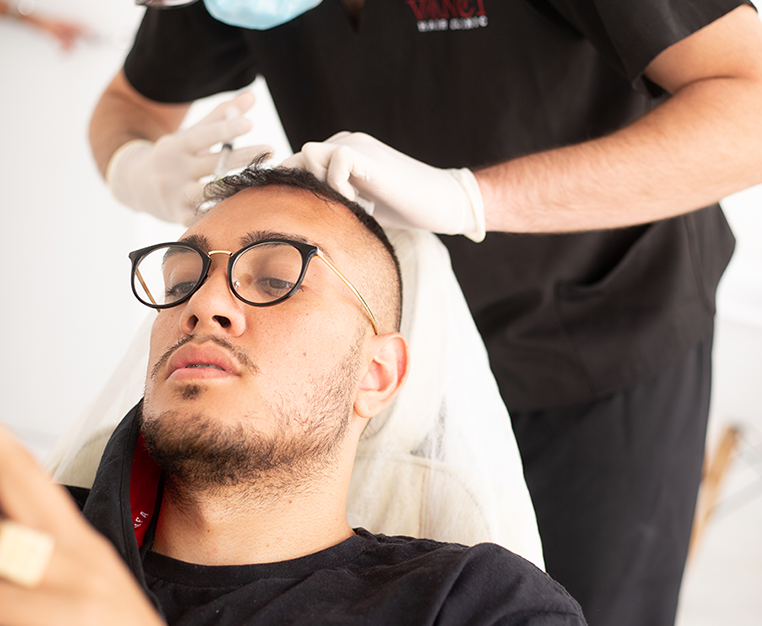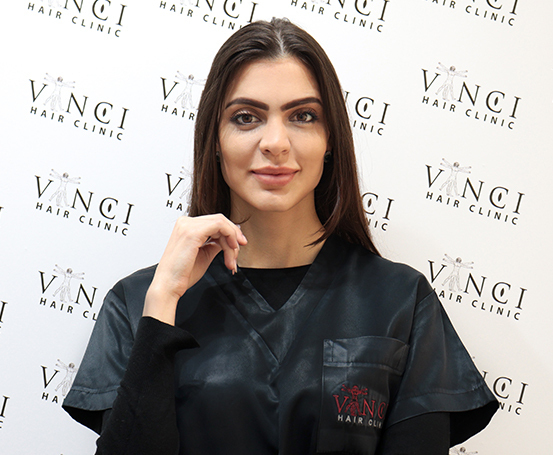A leading market research company released a report recently that focused on the global mesotherapy market. It calculated the current value of that market to be around USD 158.83 million and predicted that this would rise to USD 846.41 million by 2028. That represents a Compound Annual Growth Rate (CAGR) of over 32%. By way of comparison, a CAGR of 10-20% over a five years is thought to be healthy in the sales industry. So why has mesotherapy become such a popular choice for hair restoration? This article is going to look at some of the reasons.
Keep scrolling to find out more!
Mesotherapy Explained
In the past few decades, various hair restoration treatments have appeared on the scene, ranging from topical solutions to surgical procedures. Among these options, mesotherapy has gained significant popularity as an effective treatment for hair loss.
One of the primary reasons for its popularity is its non-surgical nature. People who don’t want a surgical solution to their hair loss problem are attracted by mesotherapy’s minimally invasive process. Unlike hair transplant surgery, which involves incisions and grafting, mesotherapy uses tiny injections to deliver a customised blend of vitamins, minerals, medications and plant extracts directly into the scalp. The injected blend stimulates cell metabolism and improves blood circulation. This encourages hair growth and improves hair quality.
The procedure can usually be performed in a clinic setting with minimal downtime, allowing individuals to resume their daily activities without too much disruption.
Customisable Approach
Unlike systemic treatments like oral medications, mesotherapy allows for a more focused and localised delivery of active ingredients to the hair follicles. By injecting the solution directly into the scalp, the treatment can address specific areas of concern.
A course of mesotherapy can revitalise dormant hair follicles and improve the overall thickness and quality of existing hair. The ingredients used in mesotherapy formulations are carefully selected to provide the best conditions for hair growth and to address specific deficiencies that may contribute to hair loss.
There are unique aspects to every individual’s hair loss pattern. Mesotherapy covers that by offering a customisable treatment approach. A skilled professional can use this to address the underlying causes of hair loss and achieve the best possible results for each client.
That means tailoring the mesotherapy blend to the specific requirements of each client. This personalised approach ensures that the treatment delivers maximum effectiveness based on factors such as the individual’s hair type, condition and goals.
Standalone or Complementary
Mesotherapy can be used as a standalone hair restoration treatment, but it can also complement other approaches. For example, individuals who have undergone hair transplant surgery can benefit from mesotherapy to enhance the results and promote faster healing.
Mesotherapy can also be combined with other non-surgical treatments, such as laser therapy or topical solutions, to create a comprehensive and multifaceted approach to hair restoration. This combination of treatments can provide synergistic effects and improve overall outcomes.
Compared to more invasive hair restoration procedures, mesotherapy has minimal side effects and downtime. Some individuals may experience mild redness, swelling, or discomfort at the injection sites, but these effects are usually temporary and subside quickly.
As a non-surgical treatment, mesotherapy eliminates the risks associated with anaesthesia, incisions and sutures, making it a risk-free option. The quick recovery time allows clients to return to their regular activities without significant interruption.
Versatility
Mesotherapy is not limited to a specific type of hair loss. It can be used to address various conditions, including androgenic alopecia (male or female pattern baldness), alopecia areata (patchy hair loss), and even hair loss due to factors like stress, nutritional deficiencies, or hormonal imbalances. The versatility of mesotherapy makes it a viable option for a broad range of individuals seeking hair restoration.
While mesotherapy has gained popularity as a hair restoration treatment, it’s important to note that results may vary among individuals. The success of mesotherapy depends on several factors, including the underlying cause of hair loss, the individual’s overall health and their commitment to follow-up treatments and maintenance.
Conclusion
Mesotherapy has become increasingly popular as a hair restoration treatment due to its non-surgical nature, targeted approach, ability to stimulate hair growth and minimal side effects and downtime. Its popularity is a testament to its effectiveness and the increasing demand for minimally invasive solutions for hair loss issues.
If you want to find out more about mesotherapy, you should talk to a hair specialist at Vinci Hair Clinic. Better still, arrange a free, no-obligation consultation to have your hair assessed by a Vinci expert. Mesotherapy may be the appropriate treatment for you, but we provide a whole range of services; one of these may be more suitable for your needs. Contact us through our website or one of our social media channels to book your appointment!



